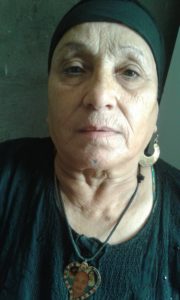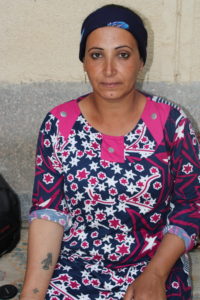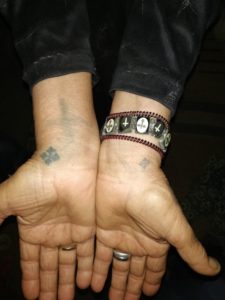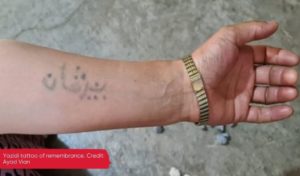Men and women from religious minorities have from ancient times inked their bodies to proclaim their identity. The Copts are one of the oldest surviving Christian communities of the Middle East, and the practice of religious tattooing dates back centuries. It is a mark of defiance, pride and solidarity in the face of adversity.
Zahia Ayoub Youssef was born in the El Rozikat region of Luxor, Egypt, and grew up in a Coptic Christian family. At the age of 25, Zahia decided to have the image of a cross drawn on her neck – using traditional methods – as she felt it would help her to recover from a thyroid problem; she felt she would not heal without it.
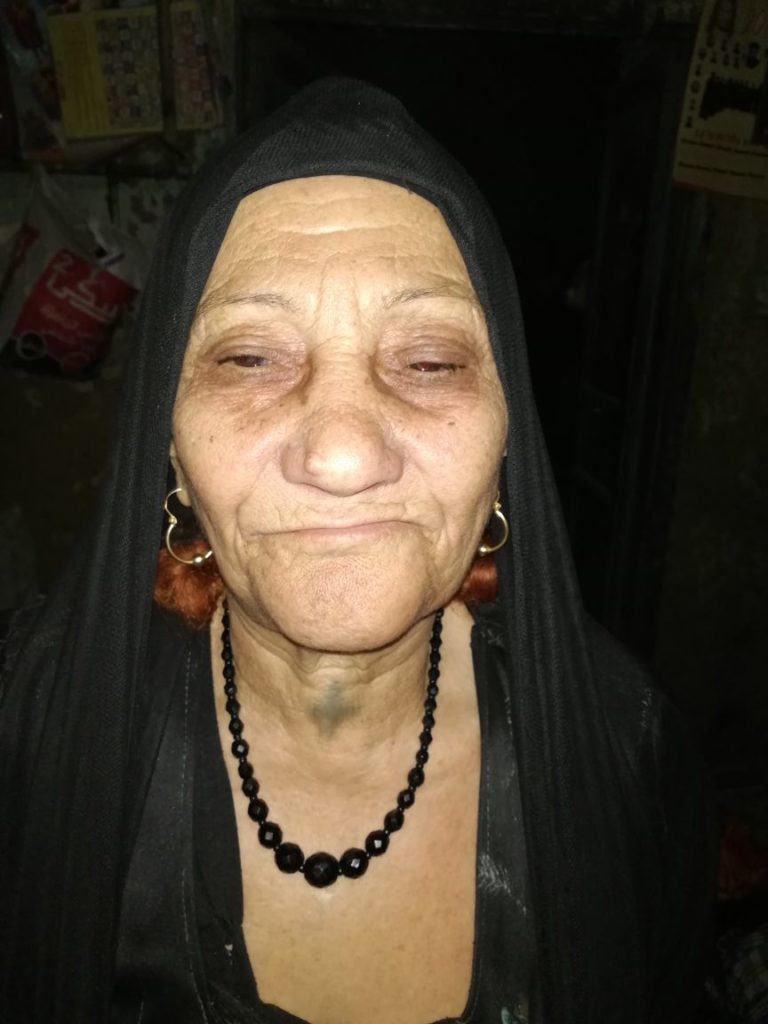
At the time her family were fearful that the procedure would be too risky due to the positioning of the tattoo, however Zahia had faith in what she was asking of the woman who volunteered to draw it for her, irrespective of the discomfort;
“The cross is healing for every disease. Whenever I have any problem in my body, I used to make a cross tattoo in the place of pain”.
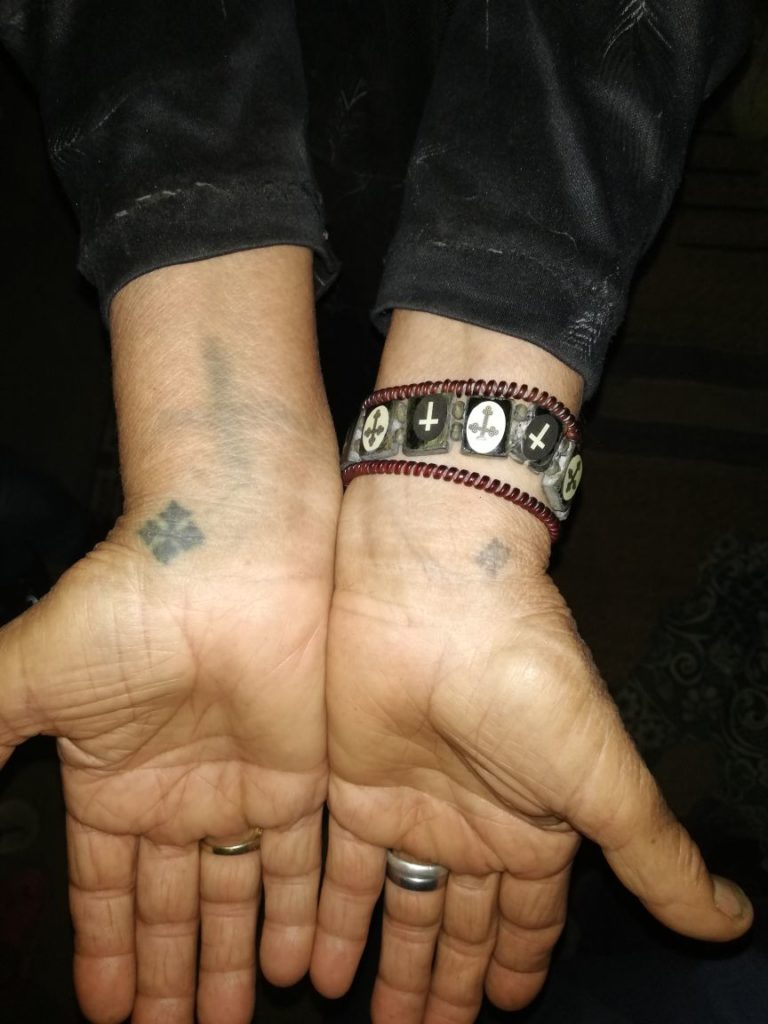
Though a controversial choice in her community, Zahia has since had numerous tattoos of similar iconography drawn across her body, signifying her continued faith in the practice and the sense of personal comfort it affords her:
“The cross is the treatment for all my pains and injuries”.
Zahia was interviewed and photographed by Abanon Alfy as part of CREID’s oral heritage project in Egypt.

